SOUTH-SOUTH FACILITY RESULTS STORIES
In ten years of operations, the South-South Facility has supported more than 240 knowledge exchanges between more than 100 developing and emerging countries.
The lessons learned from these exchanges have been captured and documented in more than 170 Results Stories which constitute the SSF Knowledge Exchange Library.
Regions & Countries
Topics
Browse by Regions & Countries
- Angola
- Benin
- Botswana
- Burkina Faso
- Burundi
- Cabo Verde
- Cameroon
- Central African Republic
- Chad
- Comoros
- Congo, Democratic Republic of
- Congo, Republic of
- Cote d'Ivoire
- Equatorial Guinea
- Eritrea
- Ethiopia
- Gabon
- Gambia, The
- Ghana
- Guinea
- Guinea-Bissau
- Kenya
- Lesotho
- Liberia
- Madagascar
- Malawi
- Mali
- Mauritania
- Mauritius
- Mozambique
- Namibia
- Niger
- Nigeria
- Reunion
- Rwanda
- Sao Tome and Principe
- Senegal
- Seychelles
- Sierra Leone
- Somalia
- South Africa
- South Sudan
- Sudan
- Swaziland
- Tanzania
- Togo
- Uganda
- Zambia
- Zimbabwe
- Brunei Darussalam
- Cambodia
- China
- Fiji
- Indonesia
- Kiribati
- Korea, Democratic People's Republic of
- Lao People's Democratic Republic
- Malaysia
- Marshall Islands
- Micronesia, Federated States of
- Mongolia
- Myanmar
- Palau
- Papua New Guinea
- Philippines
- Samoa
- Solomon Islands
- Thailand
- Timor-Leste
- Tonga
- Tuvalu
- Vanuatu
- Vietnam
- Albania
- Armenia
- Azerbaijan
- Belarus
- Bosnia and Herzegovina
- Bulgaria
- Croatia
- Czech Republic
- Estonia
- Georgia
- Hungary
- Kazakhstan
- Kosovo
- Kyrgyz Republic
- Latvia
- Lithuania
- Macedonia, former Yugoslav Republic of
- Moldova
- Montenegro
- Poland
- Romania
- Russian Federation
- Serbia
- Slovak Republic
- Slovenia
- Tajikistan
- Turkey
- Turkmenistan
- Ukraine
- Uzbekistan
- Antigua and Barbuda
- Argentina
- Bahamas, The
- Barbados
- Belize
- Bolivia
- Brazil
- Chile
- Colombia
- Costa Rica
- Dominica
- Dominican Republic
- Ecuador
- El Salvador
- French Guiana
- Grenada
- Guatemala
- Guyana
- Haiti
- Honduras
- Jamaica
- Mexico
- Nicaragua
- Panama
- Paraguay
- Peru
- St. Kitts and Nevis
- St. Lucia
- St. Vincent and the Grenadines
- Suriname
- Trinidad and Tobago
- Uruguay
- Venezuela, Republica Bolivariana de
Browse by Topics
REFINE BY
ADVANCED SEARCH
Showing 121 to 160 of 210 Entries.
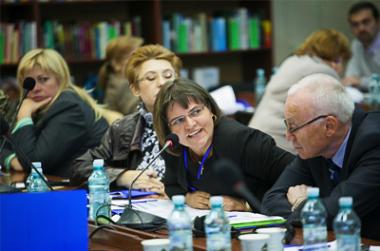
October 15, 2012 -
Improving accounting education in Moldova: Learning from the Romanian experience
Moldova recognized a need to modernize its accounting and auditing education curriculum and professional development as part of a national effort to improve corporate reporting and macro-economic stability.
Read More
Knowledge-providing Countries:
Knowledge-receiving Countries:
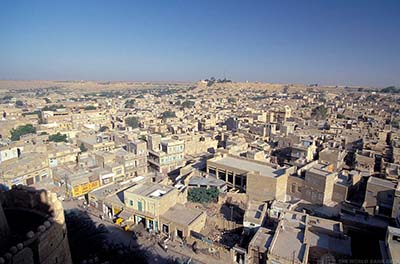
September 29, 2011 -
Enhancing South-South Cooperation to Reduce Urban Poverty
In 2003, India, Brazil, and South Africa signed a Trilateral Agreement (IBSA) establishing a mechanism for South-South cooperation among these countries and other developing nations to advance inclusive sustainable development and to counter marginalization.
Read More
Knowledge-providing Countries:
Knowledge-receiving Countries:
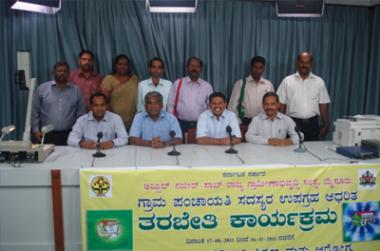
November 13, 2011 -
Improving local government services in Sri Lanka
With support of a Bank project, Sri Lankan officials sought to strengthen local governments’ capacity to provide roads, schools, and other infrastructure, and to involve citizens in development planning and programs.
Read More
Knowledge-providing Countries:
Knowledge-receiving Countries:
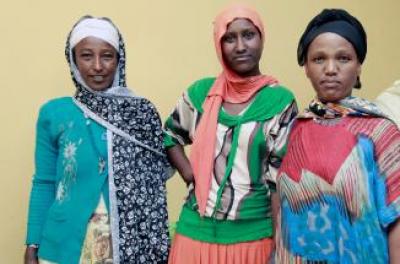
May 15, 2013 -
Supporting Female Entrepreneurship in Ethiopia
What was the objective of the South-South exchange? : The Development Bank of Ethiopia (DBE) sought to learn from India how to implement and sustain a credit facility dedicated to women’s economic empowerment leveraging microfinance institutions, as part of the World Bank’s funded Women Entrepreneurship Development Project (WEDP) in Ethiopia.
Read More
Knowledge-providing Countries:
Knowledge-receiving Countries:
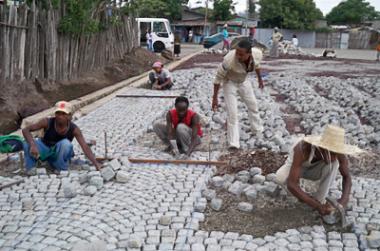
March 28, 2012 -
Decentralizing Urban Local Government for Effective Service Delivery in Ghana
The Government of Ghana created a specific unit to handle its new Local Government Capacity Support (LGCS) Project. However, this unit had limited capacity and operational experience. Local government officials from Ethiopia and Ghana shared experiences on design and implementation issues.
Read More
Knowledge-providing Countries:
Knowledge-receiving Countries:
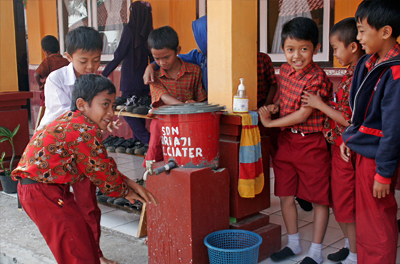
October 01, 2012 -
Output and Results-Based Approach for Local Government Programs: Vietnam learns from Indonesia
The Government of Vietnam wanted to strengthen its delivery in rural water supply and sanitation projects by promoting the use of a results-based approach at the local government level.
Read More
Knowledge-providing Countries:
Knowledge-receiving Countries:
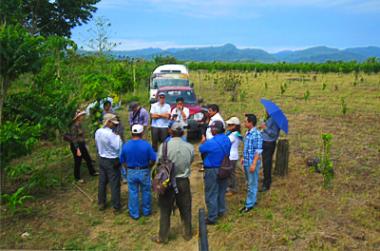
August 17, 2012 -
Improving Livelihoods of the Rural Poor in Vietnam
To address disproportionately high rates of poverty among ethnic minorities, the Government of Vietnam planned several national assistance projects in the poorest regions of the country.
Read More
Knowledge-receiving Countries:
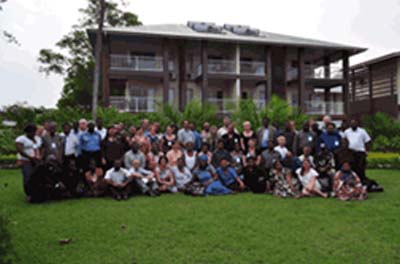
October 03, 2011 -
Strengthening Community Justice Systems in Melanesia
Effective and transparent dispute resolution systems are prerequisites to the inclusive development of the South Pacific countries of Vanuatu and Solomon Islands. Besides formal courts, these countries support community justice systems, which blend state and non-state processes and integrate customary law and lay persons as decision-makers.
Read More
Knowledge-providing Countries:
Knowledge-receiving Countries:
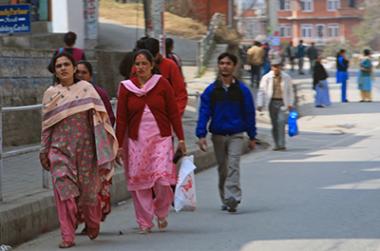
January 31, 2013 -
Strengthening Infrastructure Knowledge and Capacity in Nepal’s National Identification System
The Government of Nepal needed to address the organizational effectiveness of its National Identification Management Center (NIDMC), specifically with focus on operational efficiency, effective communications, stakeholder relations, and results.
Read More
Knowledge-providing Countries:
Knowledge-receiving Countries:
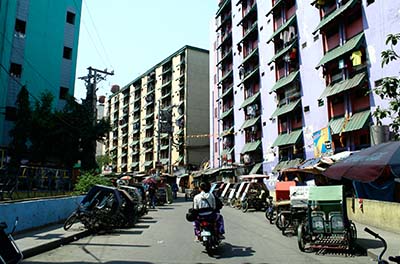
January 06, 2012 -
Kosovo Study Tour on Migration Policies
Emigration from Kosovo is among the highest in the world. Many households in the country have a family member living abroad, a situation caused by a poor economy and the armed conflict of the late 1990s.
Read More
Knowledge-providing Countries:
Knowledge-receiving Countries:
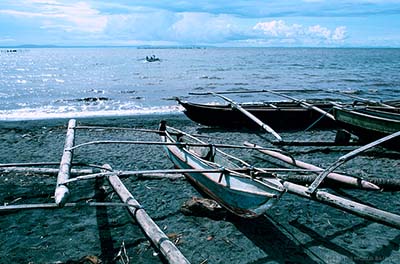
October 11, 2011 -
Improving Treasury Operations in the Philippines
Weaknesses in public financial management (PFM), such as fragmented public accounts and inadequate capacity in budget monitoring and execution, posed risks to governance and anti-corruption efforts in the Philippines.
Read More
Knowledge-providing Countries:
Knowledge-receiving Countries:

September 01, 2012 -
Improving Road Maintenance in Cabo Verde through Performance-Based Contracts
In an effort to support economic growth on the islands, the government of Cabo Verde sought to upgrade road infrastructure but only had experience with two-year road rehabilitation and maintenance performance-based contracts (PBCs)—not longer-term ones.
Read More
Knowledge-providing Countries:
Knowledge-receiving Countries:

February 01, 2012 -
Social Inclusion through Sports and Physical Culture in Russia
Since Russia's transition from a planned to a market economy over two decades ago, economic growth has been steady and GDP per capita has increased threefold – yet inequality has also risen significantly.
Looking for ways to reduce inequality and social exclusion, Russian authorities chose sports as a powerful mobilizer and vehicl
Read More
Knowledge-providing Countries:
Knowledge-receiving Countries:
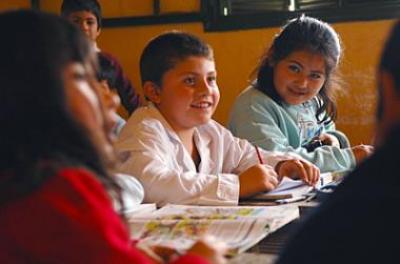
January 03, 2012 -
Improving Education through Information and Communication Technologies in Armenia and Tatarstan, Russia
The Governments of the Republic of Armenia and Tatarstan shared a similar aim: to improve the quality of their respective education system through the use of information and communications technology (ICT).
Read More
Knowledge-receiving Countries:
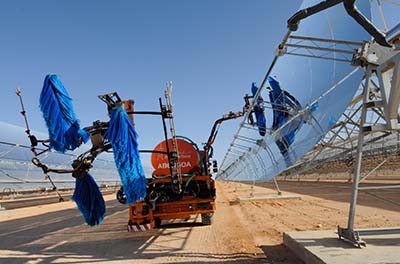
July 03, 2012 -
Learning from Successful Experiences in Developing Large Scale Concentrated Solar Power in Morocco and Egypt
As China prepared to implement its first-ever concentrated solar power (CSP) project, it wanted to learn from the experiences of other states with existing CSP projects.
Read More
Knowledge-providing Countries:
Knowledge-receiving Countries:
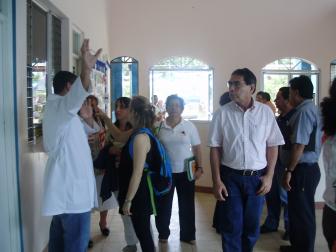
July 01, 2012 -
Strengthening the institutional capacity of the Nicaraguan Ministry of Health
To improve the management and delivery of health services to its citizens, and address equity, efficiency, and access gaps in its public health sector, the Government of Nicaragua engaged in an exchange with Argentina.
Read More
Knowledge-providing Countries:
Knowledge-receiving Countries:
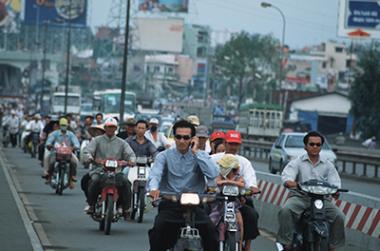
July 12, 2012 -
Building Capacity to Develop and Manage Roads in Lao PDR
Complementing a Bank-financed project, transport officials and provincial governors from Lao PDR visited South Africa to learn from its national roads agency and other organizations. Delegates increased their skills in road administration, asset management, and public-private partnerships.
Read More
Knowledge-providing Countries:
Knowledge-receiving Countries:
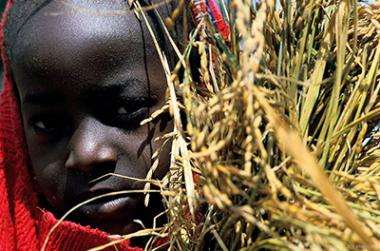
June 24, 2011 -
Strengthening nutrition programs in West African countries
The Governments of Senegal, Ghana, and the Gambia sought to strengthen their capacity to reduce rates of malnutrition. Through a series of peer reviews in nutrition, officials from these countries identified new directions for reform, and enhanced their skills and commitment to design nutrition programs.
Read More
Knowledge-providing Countries:
Knowledge-receiving Countries:
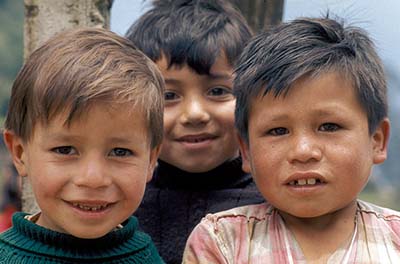
May 09, 2012 -
Improved Early Childhood Care and Development Action Plans in La Paz and El Alto, Bolivia
Bolivia’s National Development Plan and Country Partnership Strategy identify the improvement of basic social services as one of the four development pillars for sustained economic growth. New Education and Popular Participation laws call for education services that consider the nation’s rich cultural diversity.
Read More
Knowledge-providing Countries:
Knowledge-receiving Countries:
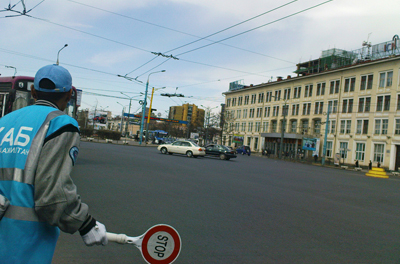
December 02, 2011 -
Improving Public Expenditure Management in Mongolia and Lao PDR
With the continued economic growth of East Asian and Pacific (EAP) developing countries, public concern has increased about the appropriateness of and transparency around public expenditures.
Read More
Knowledge-providing Countries:
Knowledge-receiving Countries:

March 28, 2012 -
Sharing Experiences for Smart Grid Transformation: Indonesia and Brazil
To promote efficiency and transparency in Indonesia’s power transmission and distribution system, senior officials and core technical staff in Indonesia’s power sector sought to exchange ideas with their Brazilian counterparts on conditions for and benefits of adopting smart grid technologies, understanding how smart grid applications work for u
Read More
Knowledge-providing Countries:
Knowledge-receiving Countries:
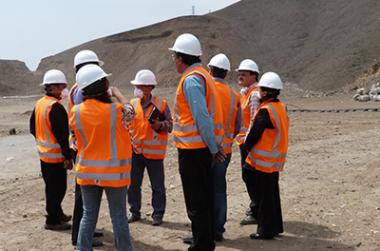
November 28, 2011 -
Strengthening Solid Waste Management in Peru
Regional, provincial, and municipal officials from Peru’s Cusco Region engaged in an exchange with Colombian officials to learn about innovative solid waste management models, including for contracts and service administration.
Read More
Knowledge-providing Countries:
Knowledge-receiving Countries:
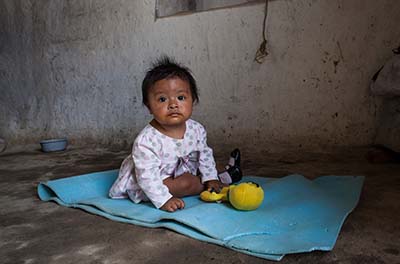
September 29, 2011 -
Lessons Spread to Combat Malnutrition in Central America
Chronic malnutrition, or stunting, is a serious problem in Central America. Stunting rates in El Salvador, Guatemala, Honduras, Nicaragua, and Panama are greater than 20 percent and the cost of malnutrition in these countries is estimated to range from 2.3 to 11.4 percent of GDP.1 A growing number of studies show that community-based growth
Read More
Knowledge-providing Countries:
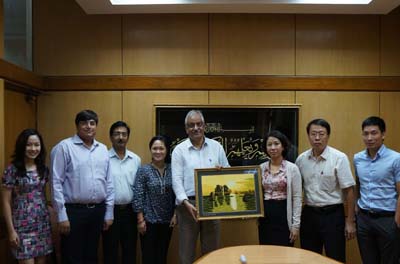
October 11, 2011 -
Promoting Pro-Poor Innovation in Vietnam
To help to reduce poverty, the Government of Vietnam prioritized “inclusive innovation,” which involves developing programs to identify national development challenges (NDCs), and stimulating low-cost yet high quality technological solutions and products benefiting the poor.
Read More
Knowledge-providing Countries:
Knowledge-receiving Countries:
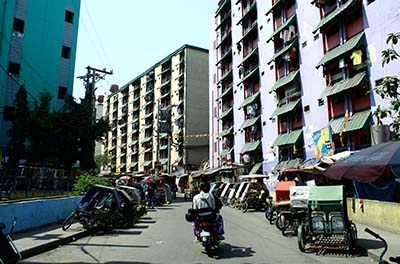
May 20, 2012 -
Study Tours to Learn Best Practices in Migrant Reintegration
Migration carries economic and social importance in the Philippines. Migrant remittances accounted for 10 percent of the GDP in 2010, and the number of Filipinos residing overseas is estimated to be 10 percent of the population.
Read More
Knowledge-providing Countries:
Knowledge-receiving Countries:
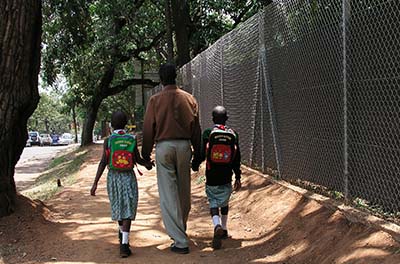
September 28, 2011 -
Improving Land Acquisition and Resettlement in Uganda
Development in Uganda, especially in the energy and mineral sectors, increasingly involves land acquisition and involuntary resettlement, which can lead to loss of assets and livelihoods.
Read More
Knowledge-providing Countries:
Knowledge-receiving Countries:

October 01, 2011 -
Improving Access to Water in Chad’s Cities
The Government of Chad prioritized increasing water services in urban areas, with a target of 74 percent of households having access to an “improved water source” as per the Millennium Development Goals (MDGs).
Read More
Knowledge-providing Countries:
Knowledge-receiving Countries:
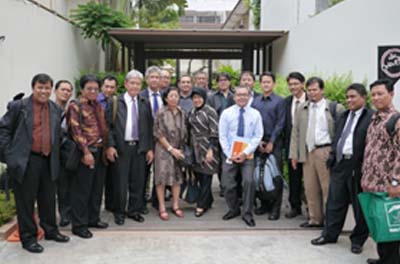
February 01, 2012 -
Improving Logistics in Indonesia
Indonesia faced deficiencies in trade and logistics that increased the costs of transporting goods and threatened its competitiveness. The Government, with support of the World Bank, sought to develop and implement a strategy to improve logistics.
Read More
Knowledge-providing Countries:
Knowledge-receiving Countries:
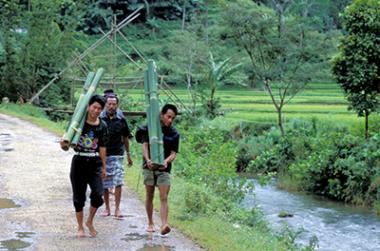
August 01, 2011 -
Strengthening Local Governance in India
India’s national and state governments sought to build their capacity to decentralize funding and responsibilities to local governments and monitor CDD programs providing grants to communities.
Read More
Knowledge-receiving Countries:
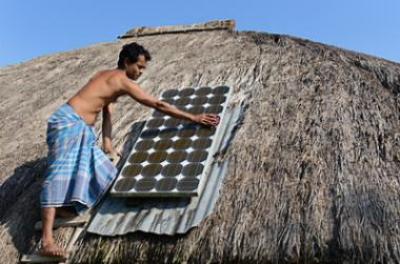
September 01, 2011 -
Promoting Renewable Energy Certificates and Sustainable Energy Certificates in Thailand
The Government of Thailand recognized the need to modify its existing energy policy to become more energy efficient, reduce greenhouse gas emissions, promote economic development, and establish environmental leadership in the Mekong region.
Read More
Knowledge-providing Countries:
Knowledge-receiving Countries:
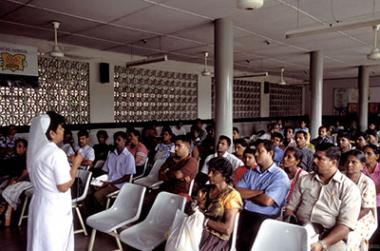
May 11, 2011 -
Improving technical and vocational education in Sri Lanka
The Government of Sri Lanka sought to develop a national skills development strategy and improve technical and vocational education (TVET). The World Bank helped organize an exchange with Malaysia, which had developed successful TVET programs.
Read More
Knowledge-providing Countries:
Knowledge-receiving Countries:
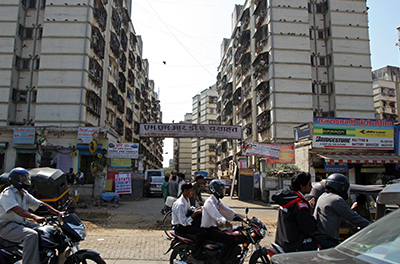
September 15, 2011 -
Strengthening India’s National Transport Policy
India’s economy grew at a rate of 8 to 9 percent annually over the past decade. This growth has increased the demand for transportation, as well as the need for investment in infrastructure and operation.
Read More
Knowledge-providing Countries:
Knowledge-receiving Countries:
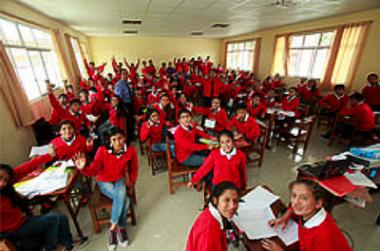
November 07, 2011 -
Rural Education Reform: Peru Learns from the Escuela Nueva Model in Colombia
In 2011, the new administration of the Peruvian Government re-prioritized the need to improve the quality of education and services in rural areas.
Read More
Knowledge-providing Countries:
Knowledge-receiving Countries:
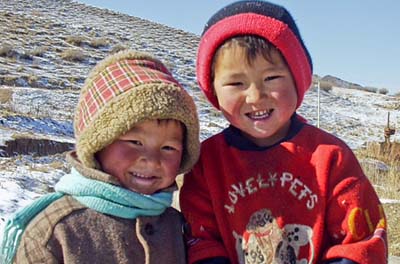
January 20, 2012 -
Building successful microfinance in rural areas in the Kyrgyz Republic
Up to 60 percent of rural households in the Kyrgyz Republic live in poverty, including 19 percent in extreme poverty. Rural households spend 74 percent of their incomes on food. At the same time, the Kyrgyz Republic had experienced some of the most severe food price shocks in Central Asia.
Read More
Knowledge-providing Countries:
Knowledge-receiving Countries:

May 12, 2011 -
Strengthening Management of Protected Areas in Yemen
In 2008, the Government of Yemen declared the Arabian leopard as its national animal, recognizing the leopard’s endangered status and threats to its habitat, such as human population, prey depletion, and poaching.
Read More
Knowledge-providing Countries:
Knowledge-receiving Countries:

March 26, 2012 -
Strengthening Open Government in Tunisia
In the wake of the Jasmine revolution, the Government of Tunisia made it a priority to improve government accountability and openness. One way it sought to do so was through information and communication technologies (ICT). In 2011, the Government considered joining the Open Government Partnership (OGP).
Read More
Knowledge-receiving Countries:
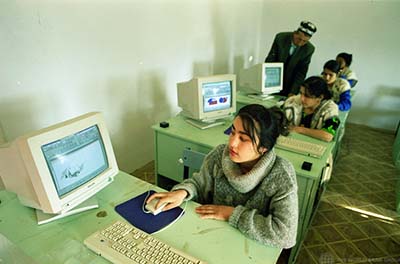
May 31, 2011 -
Fostering Information and Communication Technologies for Public Sector Reforms in Tajikistan
The Government of Tajikistan aimed to develop a more transparent, accountable, and cost-effective government through the use of information and communications technologies (ICT) and turned to the World Bank’s South-South Facility for help.
Read More
Knowledge-receiving Countries:
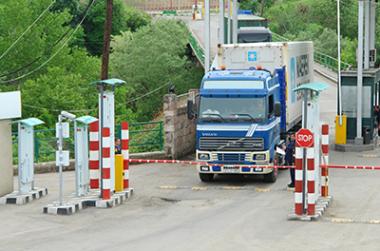
June 24, 2011 -
Enhancing the quality of Uzbekistan’s exports
To ensure its exports are competitive on international markets, the Government of Uzbekistan sought to upgrade its national quality infrastructure (NQI), supporting standardization, accreditation, certification, and metrology (measurement).
Read More
Knowledge-providing Countries:
Knowledge-receiving Countries:
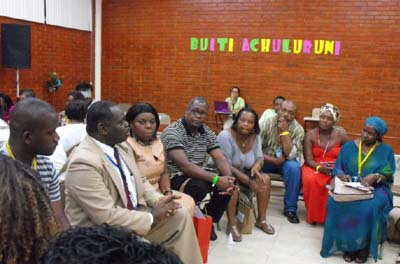
June 14, 2011 -
Engaging the Indigenous in Honduras’ Development
In Honduras, Afro-descendent and indigenous groups are among the poorest in the country, and lack a voice in development. The government approved a plan to involve them in development, and also created a Ministry to promote their welfare.
Read More
Knowledge-receiving Countries:
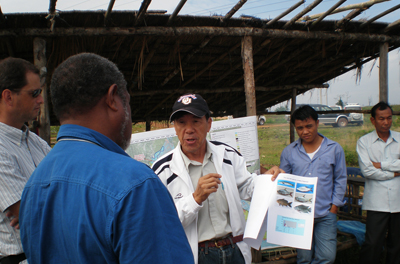
May 31, 2011 -
Supporting Hydropower in Papua New Guinea
The Government of Papua New Guinea (PNG) has prioritized tapping renewable energy sources, including hydropower, to increase the share of households with access to electricity from 13 percent to 70 percent by 2030.
Read More
Knowledge-providing Countries:
Knowledge-receiving Countries:

 China
China Colombia
Colombia Denmark
Denmark India
India Indonesia
Indonesia Mexico
Mexico Russian Federation
Russian Federation Spain
Spain United Kingdom
United Kingdom